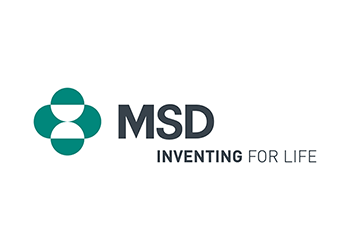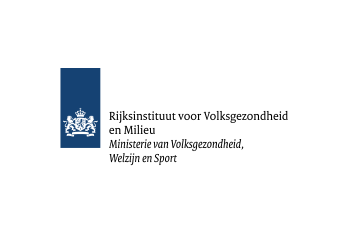If you take the right precautions, it is virtually impossible to pass on HIV to your baby. Having HIV doesn't stop you wanting to have children; your life expectancy is the same as someone without HIV after all. Breastfeeding when you are HIV positive is a personal choice. Discuss this with your specialised HIV doctor and read the detailed information below. After the birth, the baby should be on HIV medication for a month, just to be on the safe side.
In brief:
- If a woman with HIV takes medication and has a suppressed virus, the child will not contract HIV in the course of a normal pregnancy and delivery.
- A father with HIV cannot transmit the virus to the unborn child.
- If a woman with HIV takes medication and has a suppressed virus, the risk of transmitting HIV through breastfeeding is minuscule.
- Women with HIV can choose to breastfeed.
- In the Netherlands, there is good guidance for people who want to adopt a child with HIV.
- People with HIV can adopt children.
- Pregnant women in the Netherlands are routinely screened for HIV.
Prepare well
Although there is virtually no risk of your child contracting HIV, having a baby is still very stressful for many expectant parents. How will people around you react? Do they know whether you have HIV or not? Each father or mother with HIV will find their own way of dealing with it. Your specialised HIV doctor and your HIV nurse can help you with issues like this. So always tell your specialised HIV doctor or HIV nurse if you want to get pregnant. Seeking contact with HIV positive mothers or fathers, or HIV positive people hoping to have children, is highly recommended. Find out more at Posidivas (some English, mostly Dutch) and Positive Families (in Dutch).
Getting pregnant
A pregnancy gives you a lot to think about when you have HIV. Discuss your desire to get pregnant with your specialised HIV doctor or HIV nurse before you start trying. You will then be referred to a gynaecologist specialised in HIV, who will support you.
Your specialised HIV doctor or gynaecologist will tell you whether your HIV medication is safe for your unborn baby, or whether you need to temporarily switch to another medication. It is sometimes necessary to switch medication if you want to become pregnant. This is because not all HIV medication is suitable for pregnant women.
It is very important that you, as a future mother or father with HIV, have a suppressed virus. This means you cannot pass on the HIV virus to your partner, and a mother with HIV cannot pass it on to her child, before or after birth.
If the woman does not have a suppressed virus, it is very important to get the viral load down before pregnancy. Otherwise, there is an increased risk that the baby will develop HIV during pregnancy and the birth. If you want to get pregnant, always discuss it with your specialised HIV doctor. This means he or she can determine what is the best medication to bring down your viral load.
Read below how you can get pregnant if both you and your partner have HIV, or one of you has HIV.
both HIV positive
If you both have HIV, getting pregnant is not very different from how other couples do. The woman can get pregnant by having sex without a condom. However, it is very important that the mother’s virus is suppressed (viral load <200 copies/ml), so that she cannot transmit HIV to her baby, before or after the birth.
Pregnancy
It is very important that you, as a pregnant woman, have a suppressed virus. This means you cannot pass on the HIV virus to the expectant father or to the baby, before or after the birth. Mother and child have separate bloodstreams, so HIV is not passed on from mother to child in a normal pregnancy, as long as the mother has a suppressed virus. However, the virus can be transmitted through the placenta if the virus is not properly suppressed.
Childbirth
You give birth in a hospital. Women with HIV can have a natural birth; a caesarean section is not necessary.
It is very important to have an undetectable viral load during childbirth. HIV can be transmitted during childbirth if the viral load is high. By taking the right medication and having an undetectable virus, the chance of transmission during childbirth is almost zero. The proper precautions are taken in the hospital, to ensure the baby does not contract HIV during childbirth.
HIV medication and monitoring the baby
To be on the safe side, you should give your baby HIV medication – in the form of a drink squirted into the mouth – twice a day for the first four weeks after birth. They will tell you all about this at the hospital. Your baby will be tested for HIV immediately after birth, five to six weeks later, and again after three months. If the tests all come up negative, you can assume your child does not have HIV. Children born to a mother whose virus was not sufficiently suppressed are tested again for HIV after 18 months, just to be sure.
Breastfeeding or formula milk
When you have HIV, you can choose between breastfeeding or formula milk. Breastfeeding and formula milk both have advantages and disadvantages. It is important to make this choice yourself and to be well informed. So always consult your internist or specialised HIV doctor. But don't forget: it is important you make a well-considered choice, because it's not possible to switch from formula milk to breastfeeding.
In this English-language leaflet you find information on feeding your baby, either with breastmilk or with formula milk. In this this English-language leaflet you find information about breastfeeding when you have HIV.
breastfeeding
If you have a suppressed virus, breastfeeding poses a very low risk of passing on HIV to your baby. It is not yet known exactly how great the risk is in a mother who is being closely monitored and has an undetectable virus. It may be zero but that hasn’t yet been sufficiently researched. Click here for more information on the risk of transmission (in Dutch).
There may be various reasons to still want to breastfeed. Women who want to breastfeed but don’t get the chance, or who are not supported in their choice by healthcare professionals, may feel worthless, guilty or sad. They may also worry about bonding with their baby. Not being able to breastfeed can cause stigma and self-stigma. In short, not everyone has to breastfeed, but you should be able to talk about the choice.
It’s important to receive proper guidance during the period of breastfeeding, and to have your viral load checked regularly. If your viral load is undetectable, you adhere to your treatment regime and your baby gets HIV medication, the risk of passing on HIV through breastfeeding is minuscule. Various factors influence the risk of HIV transmission. These include the health of the mother, the strength of her immune system (level of CD4 cells) and her viral load. Breast problems like mastitis or cracked nipples also increase the risk of transmission. The duration of the breastfeeding period is important, and so is the age of the baby. For this reason, in the Netherlands it is recommended that mothers with HIV breastfeed for a maximum of six months. Ulcers in the baby’s mouth (e.g. from thrush) or gastrointestinal tract problems (e.g. from introducing solid food to early) can increase the risk of transmission. If you cannot or do not want to take HIV medication during or after childbirth, breastfeeding is not recommended.
The Hiv Verenging (Dutch HIV Association) recommends talking to your specialised HIV doctor or HIV nurse if you have HIV and want to breastfeed. To be able to make their own choices and to be supported in this process by healthcare professionals, it’s important that women discuss their wishes with their doctors: although the risk of transmission is very small, good medical supervision is necessary. If you don't receive support from your internist or specialised HIV doctor, we advise you to report this to our Servicepunt (Service Desk) so that action can be taken.
Adopting a child with HIV
Children with so-called special needs - a medical record - are offered for adoption in other countries when they cannot be adopted in their country of origin. This sometimes includes children with HIV. There are still enormous taboos about HIV in some countries, and medical facilities are sometimes inadequate.
Special conditions regarding adopted children with HIV are not enforced. This prevents unnecessary discrimination and stigmatisation. For more information on adopting a child with HIV, call the Servicepunt at the Hiv Vereniging: 020 - 689 25 77 – Mondays, Tuesdays and Thursdays, from 14.00 to 22.00. You can also find extensive information on the website Stichting Adoptievoorzieningen. Read here how HIV care for children is organised in the Netherlands.
Adopting a child when you have HIV
People with HIV can adopt children just like other people can. Having HIV doesn’t exclude you from being an adoptive parent. Click here to read more about adopting a child.
HIV test during pregnancy
Pregnant women in the Netherlands have been routinely tested for HIV since 2004. So you might find out you have HIV during your pregnancy. Pregnant women found to have HIV, are started on HIV medication during the pregnancy. The goal is to have the virus suppressed by the third trimester. Ensuring suppression of the virus means that the mother does not pass her HIV on to the child.









